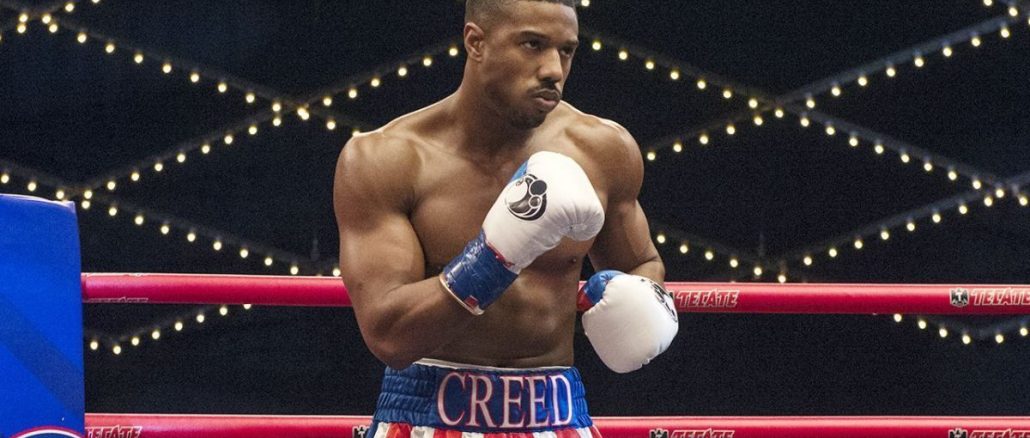
Creed III is an exciting new change of pace for the Rocky franchise. While maintaining many of the traditional staples of the previous films, director and star Michael B. Jordan provides a fresh, anime-inspired approach to boxing in an impressive filmmaking debut.
The third instalment in the Creed saga sees fictional boxer Adonis Creed (Michael B. Jordan) face off against his menacing childhood friend Damian “Diamond Dame” Anderson (Jonathan Majors). The grounded tone of the series predecessors is less present here. While Creed (2015) played as a sports biopic, this storyline is much more like something you would see in the WWE.
The dynamic between Creed and Anderson is electric. The opening scene shows the two caught up in a violent incident that sends the characters on separate paths, Adonis headed towards a life of luxury and boxing success while more talented prodigy Dame can only watch from a jail cell while serving an 18-year prison sentence. For the second time in the space of a month, Jonathan Majors expertly plays a brooding villain. There’s a deeply concealed rage and bitterness to his performance that, paired with Majors’ usual eccentricities and imposing stature, makes Dame incredibly shifty and quite terrifying.
When Anderson resurfaces in Creed’s now lavish life, he represents a past that Creed has unsuccessfully been trying to put behind him and must now confront. The trauma of an abusive foster parent and the declining health of his adoptive mother Mary-Anne (Phylicia Rashad) fills him with a deep rage that he has trouble speaking about with his wife Bianca (Tessa Thompson). When his daughter Amara (Mila Davis-Kent) begins fighting amongst her classmates, Creed is forced to learn to deal with his anger so he can help his daughter do the same. It’s a powerful story about the importance of men talking about their problems, with the clever use of ASL Adonis uses his hands to communicate with his daughter while also using them to teach her to box and release her anger.
Fighting in the Rocky franchise has always been over the top for the very simple reason that real boxing is usually defensive and boring. However, instead of exaggerating the frequency and power of punches, here Creed can seemingly slow down time to beat his opponent. Jordan directs a lot of attention towards the fighters’ dripping sweat and emphasis on eye contact that gives the conflicts an almost mystical element. The final showdown literally takes place in another phase of reality as the crowd disappears and the ropes turn into prison bars. All our attention is focused on a gripping bout between Creed and Dame, that feels more soulful than personal. It’s an interesting new perspective and approach that avoids feelings of repetitiveness and monotony.
Those hoping to see an appearance from Sylvester Stallone as Rocky Balboa will leave disappointed as for the first time in the series neither him nor his iconic theme music are featured. We still have many of the classic trademarks such as the ever-present training sequences and our hero refusing to give into the pain of an injury to finish the final round. But you can’t help but feel like this film and its bold choices is Jordan desperately attempting to step out of Stallone’s shadow and finally take the spotlight for himself.
Some may criticise the film for covering the same story beats as its predecessors. This film is certainly not trying to reinvent the “Rocky” formula and is easily predictable throughout, but if something isn’t broken why fix it? The box office success of Top Gun: Maverick and Avatar: The Way of Water suggests that audiences have started to grow tired of the self-deprecating and sarcastic blockbusters that dominate the current landscape and are hungry for stories that are confident and heartfelt. Just like the career of Rocky Balboa, and now Adonis Creed, this series seems to get better with time.
Sean McStay
